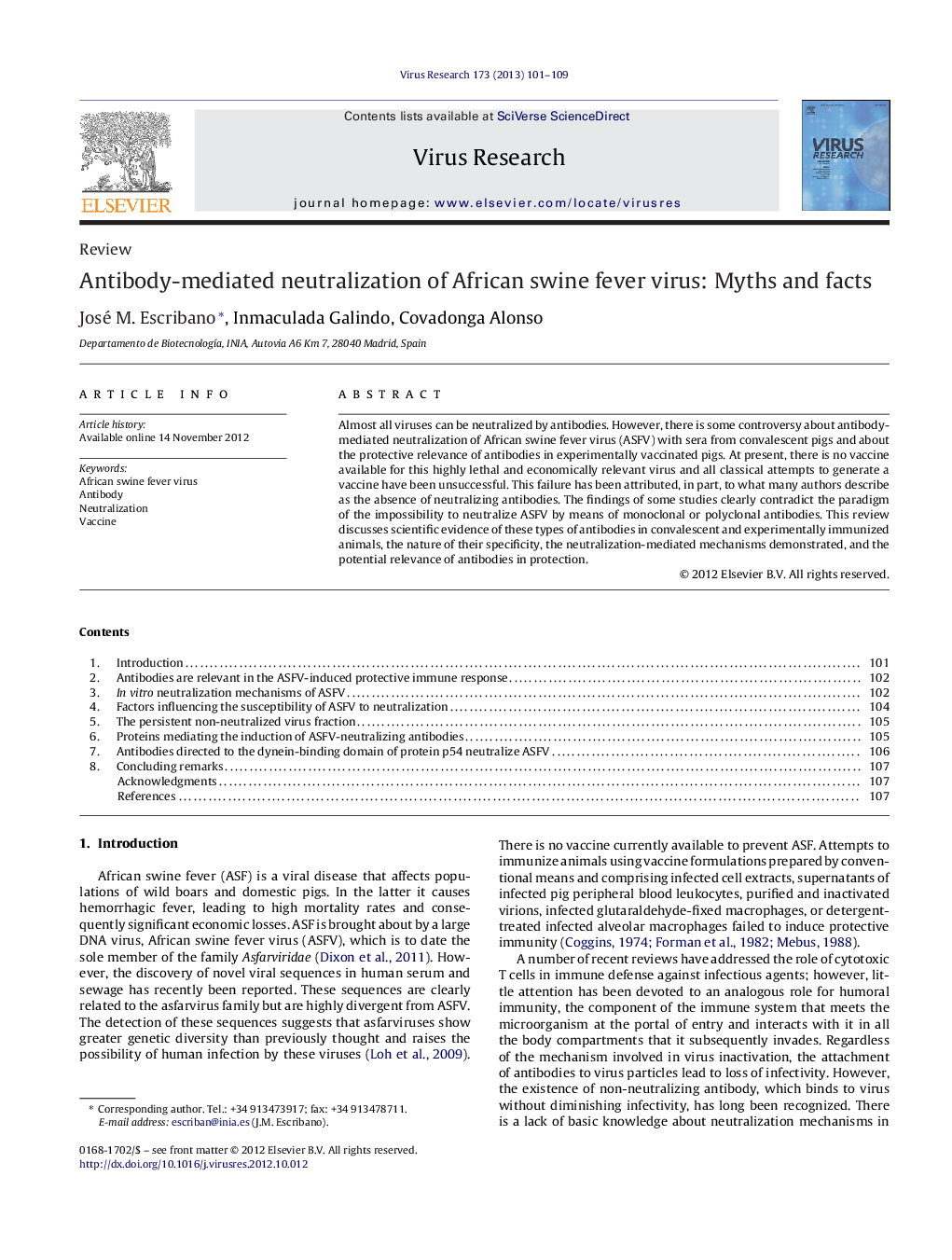| Article ID | Journal | Published Year | Pages | File Type |
|---|---|---|---|---|
| 3428795 | Virus Research | 2013 | 9 Pages |
Almost all viruses can be neutralized by antibodies. However, there is some controversy about antibody-mediated neutralization of African swine fever virus (ASFV) with sera from convalescent pigs and about the protective relevance of antibodies in experimentally vaccinated pigs. At present, there is no vaccine available for this highly lethal and economically relevant virus and all classical attempts to generate a vaccine have been unsuccessful. This failure has been attributed, in part, to what many authors describe as the absence of neutralizing antibodies. The findings of some studies clearly contradict the paradigm of the impossibility to neutralize ASFV by means of monoclonal or polyclonal antibodies. This review discusses scientific evidence of these types of antibodies in convalescent and experimentally immunized animals, the nature of their specificity, the neutralization-mediated mechanisms demonstrated, and the potential relevance of antibodies in protection.
► ASFV is neutralized by antibodies from convalescent or immunized swine and by monoclonal antibodies. ► Neutralizing antibodies play an important role in protection against ASFV. ► Antibody neutralization of ASFV is carried out by at least two mechanisms: inhibition of virus binding and inhibition of virus internalization. ► At least proteins p54, p30 and p72 are involved in the ASFV neutralization mediated by antibodies. ► The dynein-binding domain of p54 protein is able to induce antibodies that partially neutralize the ASFV.
